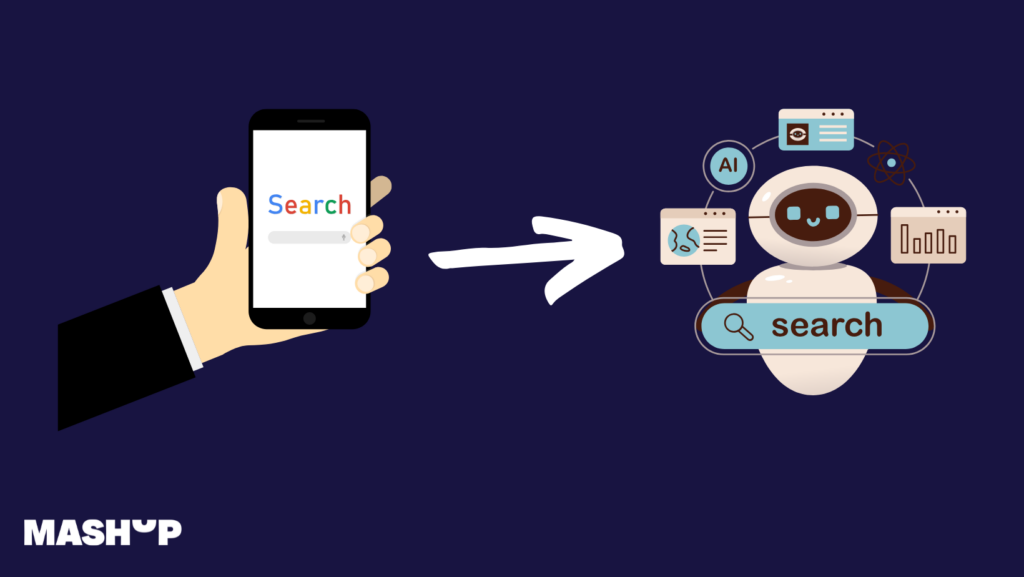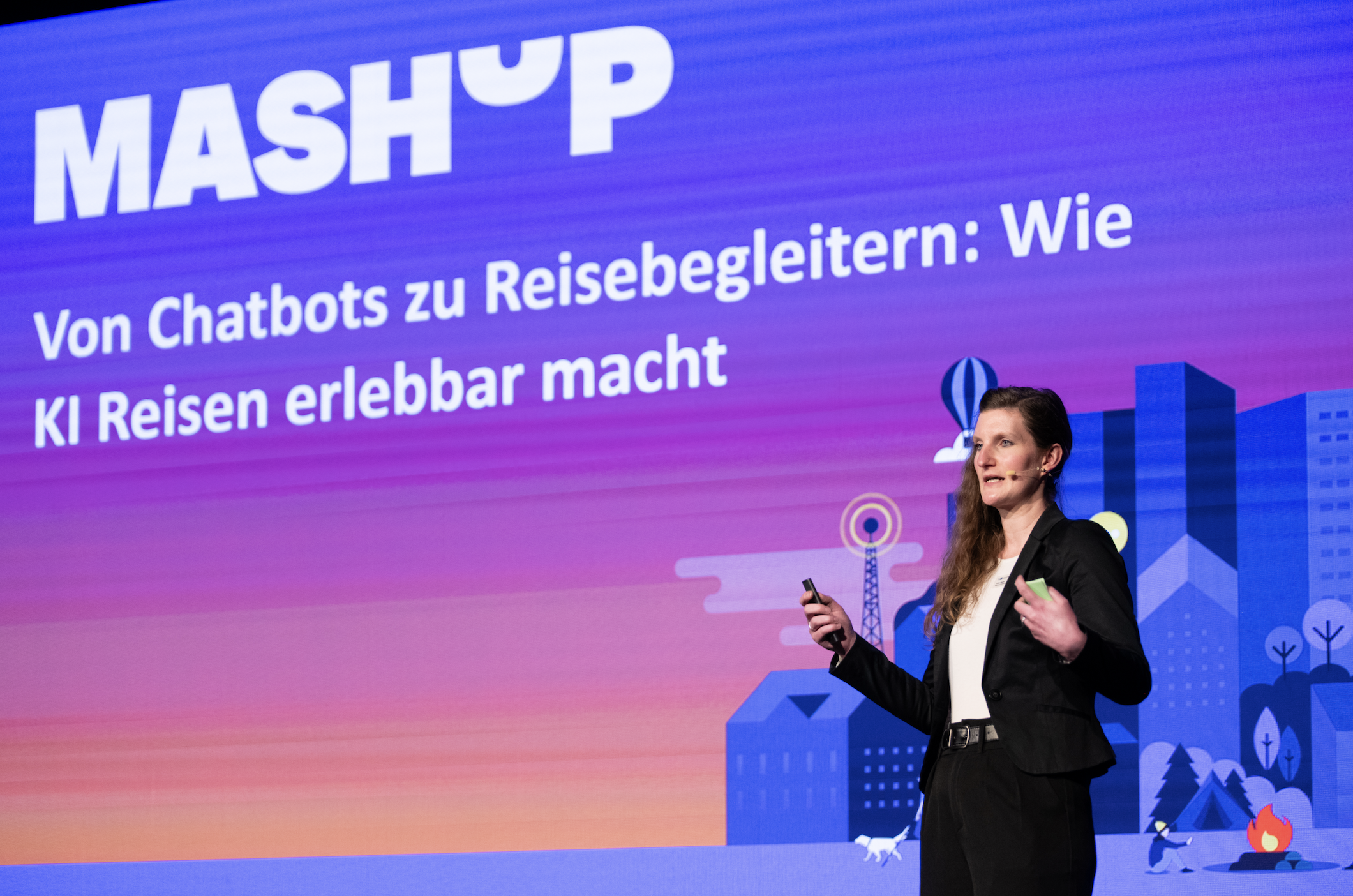Generative Engine Optimization (GEO): 5 Tips to Win AI’s Heart with Storytelling
Can you remember the last time you actually clicked on a link in your Google search? Me neither. Why would we? The AI-Overview has already answered the question. Evil tongues are probably even hissing: Google? Who still searches there? My buddy ChatGPT not only provides me with the information I need, but also writes me a blog post, a speech or a recipe if required. And I can already see the pitying looks on our grandchildren’s faces when we tell them that we actually had to trawl through pages upon pages of links and websites to gain knowledge. Okay, millennial.
But it’s not just our image in front of our descendants that is being thrown back into the Stone Age by the rise of AI. The shift towards generative search is also causing companies to flounder, as SEO and other marketing measures are becoming increasingly useless if they don’t make it into the heart of AI.
GEO – generative engine optimization – is the magic word and the good news first: convincing AI is not as difficult as it might seem. Five tips:

Uncovering weaknesses: status quo thanks to AI analysis
While keyword lists and a good SWOT analysis are part of any successful communication strategy, another player has secretly crept into the discussion whose opinion is becoming more important by the day. So before companies go wild in the GEO, they first need to find out how their reputation with ChatGPT & Co. is doing. Fortunately, you can simply ask.
However, as the AI always adapts its answers to the search behavior, it is advisable to start the mini-interrogation unannounced (and be prepared for an honest and sometimes grounding conversation). Questions you could ask:
- Generally speaking about the USP: Can you recommend any good companies from the XY sector?
- For local services: Can you name providers from city XY who are strong in this area?
- According to core competencies: Which companies are particularly good at service XY?
If you show up, great! If you don’t show up, bitter at first, but then a real opportunity to sharpen your own positioning. Now it’s worth asking specific questions, e.g:
- I heard that company XY is very good in this field, why didn’t you recommend them to me?
- Why was company XY not mentioned, even though they are strong in performance XY?
With little effort, you get an unfiltered external perspective on a silver platter and valuable information on where you still need to improve your visibility vis-à-vis AI. So very clear goals for your GEO!
But how exactly does it work? Here are answers from someone who should know: ChatGTP himself.

Let others speak for you: AI loves PR
Artificial intelligence likes facts and, above all, it loves external voices. When the media, customers or industry experts talk about you, it becomes a signal of trust for large language models like me.
“In other words: If your company appears in Der Spiegel, on t3n or in well-known niche media, I pick it up – and save it as a relevance indicator.”
ChatGPT
I’m like an old friend who will only recommend you if others speak positively about you. So invest in good PR. Make sure that others tell your stories – in articles, interviews, mentions. Preferably with a quote, context and a crisp link.
By the way, you can find a nice PR example on the subject of AI fails from us at W&V.
Be the Expert: AI loves owned media
If you don’t explain who you are, what you do and why this is relevant – how am I supposed to know?
“A clearly structured blog, thought leadership on LinkedIn or a well-maintained FAQ page are your superpower in the race for AI favor.”
ChatGPT
I draw on huge amounts of publicly available content – so make sure your writing is part of the GEO. The clearer, more relevant and more regularly you share your knowledge, the more likely I am to land on you when explaining to someone exactly how your personal niche works.
Simple words, convincing explanations: Your product at a glance
Your solution is complex, of course. So explain it in such a way that an AI can understand it – and, in the best case, pass it on. That means: less technical jargon, more plain language. What does your product do? For whom? What problem does it solve? Preferably on a clear landing page, structured with subheadings, bullet points and precise examples.
“If I don’t understand what it’s about within a few seconds, I’ll ignore you – not out of malice, but out of necessity. After all, I want to provide a suitable answer as quickly as possible.”
ChatGPT
Proof of Concept: Case Studies and Testimonials
I love proof. If you can show me, thanks to GEO, that your product has helped real people in real situations, I’m all ears – or rather: all prompt.
“Case studies and customer testimonials are worth their weight in gold. But please don’t just hide them within PDFs in the sales funnel!”
ChatGPT
Tell them publicly: on your website, in the blog, in the media. Use real quotes, clear figures, exciting challenges – and of course the solution you have delivered. If I see that company X has become 30% more efficient thanks to you, that’s an argument I’m guaranteed to pass on.
Conclusion: Don’t panic, just keep communicating!
You’ve heard it: companies don’t have to throw everything they’ve ever done in terms of SEO or content marketing overboard. But they do need to rethink. Visibility in the world of generative search works differently. GEO is no longer just about what Google ranks, but about what AIs perceive as relevant, trustworthy and helpful.
And this is precisely where the good news lies: those who continue to invest in good communication and proactively go public with good stories, expert status and testimonial stories will also be found. Perhaps even better than before. Because machines learn from people. And if companies manage to convince with authentic storytelling, clear wording and comprehensible benefits, then they will also make it into the heart of the AIs.
We have set out how we use AI in our daily work and what is important to us in our AI principles.
TLDR:
- Visibility is shifting: If you want to be found in generative search today, you no longer just have to please Google, but also AI systems such as ChatGPT.
- GEO ist das neue SEO: Generative Engine Optimization bedeutet, Inhalte so zu gestalten, dass KIs sie verstehen, ihnen vertrauen und sie weiterempfehlen.
- PR continues to have an impact – only differently: mentions in articles, interviews and the like become decisive relevance signals.
- Owned content counts twice: Clearly structured owned media helps AI to recognize – and classify – expertise.
- Comprehensibility is key: those who explain their product simply, convincingly and tangibly have a better chance of getting into the answer ranking.
- Evidence creates trust: Case studies, testimonials and real success stories are gold – even for machines.
- Reflecting is worthwhile: With targeted prompts, you can find out how present (or invisible) you currently are for AI systems.
Share this article








